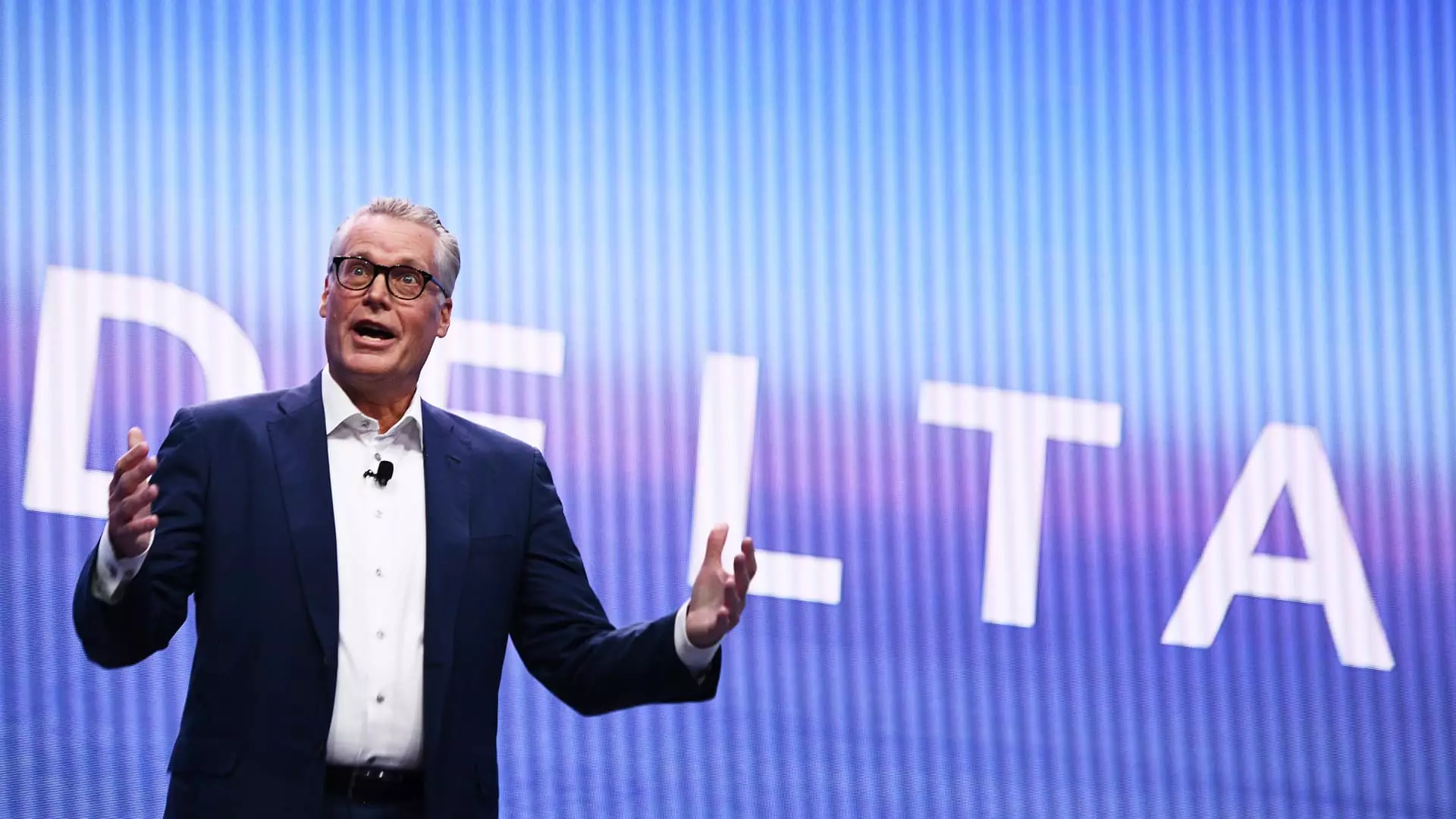Delta Air Lines CEO Ed Bastian recently extended two free travel passes to employees as a gesture of gratitude for their perseverance during the chaos caused by a faulty CrowdStrike software update. The disruptions led to the cancellation of more than 5,000 flights between July 19 and July 24, surpassing the total number of flights canceled in all of 2019. According to FlightAware, the incident cost the company a staggering $500 million, equivalent to 40% of Delta’s second-quarter profit. The repercussions of the disruptions were felt not only by the airline but also by various industries worldwide, underscoring the severity of the situation.
Throughout the crisis, over 4,000 Delta flight attendants stepped up, picking up more than 6,100 trips to mitigate the impact of the disruptions. Their efforts were recognized by Bastian, who commended them for their heroic contributions. However, despite the commendation, concerns were raised by the Delta organizing committee of the Association of Flight Attendants-CWA. The committee deemed the offer of travel passes inadequate and criticized airline management for failing to implement substantial changes to prevent future meltdowns. The discontent among employees underscores the need for a more robust and sustainable approach to addressing operational vulnerabilities.
While Delta’s operations have since stabilized, the disruptions tarnished the airline’s reputation for reliability and punctuality. Delta has worked diligently to cultivate a reputation as a premium airline, targeting both leisure and corporate customers who prioritize quality service. The aftermath of the disruptions posed a significant challenge to the airline’s branding efforts, highlighting the fragility of customer trust in the face of unforeseen setbacks. In response to the disruptions, Delta processed numerous refunds and reimbursement requests, acknowledging the inconvenience caused to affected passengers.
The U.S. Department of Transportation has launched an investigation into Delta’s disruptions, signaling the seriousness of the situation. Transportation Secretary Pete Buttigieg affirmed the government’s commitment to ensuring accountability and transparency in addressing the repercussions of the incident. Additionally, Delta is exploring legal recourse against CrowdStrike and Microsoft to recoup the financial losses incurred during the disruptions. The decision to pursue legal action reflects the airline’s determination to hold accountable the parties responsible for the software update failure.
The disruptions at Delta Air Lines serve as a stark reminder of the vulnerability of the aviation industry to technological failures and operational challenges. As airlines increasingly rely on digital infrastructure to streamline operations and enhance customer experiences, the need for robust contingency plans and proactive risk management strategies becomes paramount. Moving forward, Delta and other airlines must prioritize resilience and adaptability to navigate unforeseen disruptions effectively. By learning from past incidents and implementing proactive measures, airlines can safeguard their operations and uphold their commitment to customer satisfaction and safety.


Leave a Reply